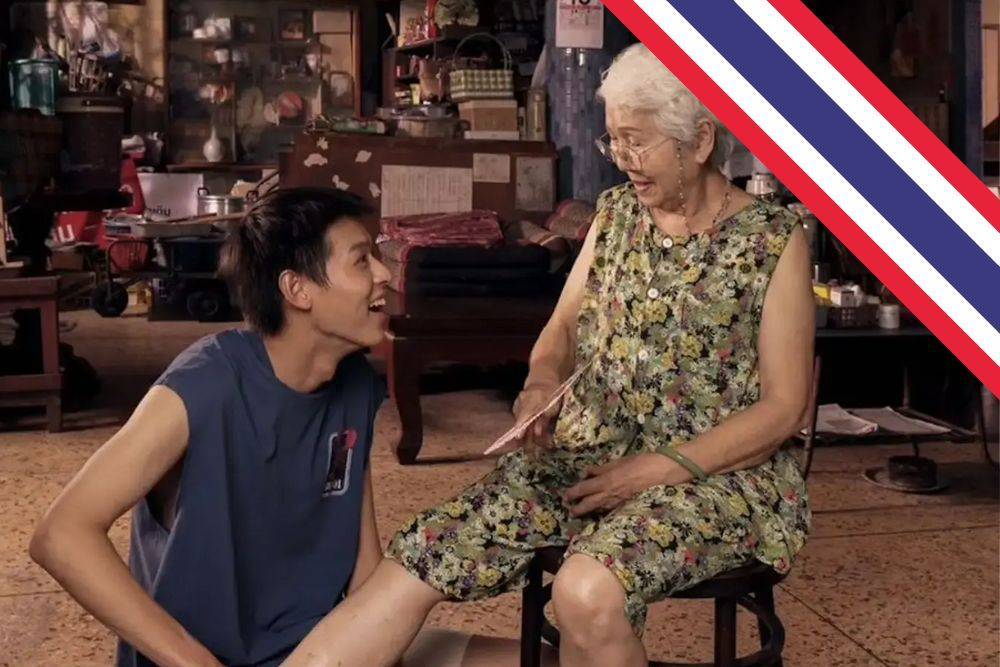“How To Make Millions Before Grandma Dies” is a 2024 Thai drama film directed and co-written by Pat Boonnitipat. Starring Putthipong Assaratanakul and Usha Seamkhum. It has taken the world by storm, capturing hearts and causing thousands of crying faces to leave the cinemas.
In this article, we explore the medical accuracy of the cancer treatment process that Amah, one of the main characters in the movie, goes through. We have invited Dr Eugene Yeo, Colorectal & General Surgeon, to share his medical perspective. SPOILER ALERT.
The Plot
The movie delves into the story of teenage university student M. M dropped out to pursue a career as a game caster, hoping to make a fortune. Unsuccessful, he decided to take care of his terminally ill grandmother, Amah, in hopes of inheriting her wealth. The film offers a dramatic exploration of family dynamics, financial aspirations, and the emotional complexities of caretaking.
Colorectal Cancer Among Women
The key theme of “How To Make Millions Before Grandma Dies” story is Amah’s process of dealing with colorectal cancer. While colorectal cancer is more prevalent among men, it can still occur in women, especially as they grow older.
Dr Eugene Yeo’s Perspective
Generally speaking, the risk of all cancers (including Colon and Rectal Cancers) increases with age. As patients grow older, the risk of developing cancer increases, with the highest incidence occurring after the age of 50. Recent studies have suggested that the age at which the incidence peaks is increasingly getting younger. As such, some countries (such as the USA) have changed their screening guidelines. It now starts at 45 instead of 50 in a bid to try and catch cancers earlier.
With regards to females compared to males, the general risk for females is slightly lower. Incidence rates for males in Singapore are around 38 or so per 100,000 population. Meanwhile, the number for females is around 29 per 100,000.
Colorectal Cancer Care
In “How To Make Millions Before Grandma Dies”, Amah is depicted as suffering from Stage 4 Colorectal cancer. She was then treated with chemotherapy. However, the treatment was unable to save her and her condition continued to deteriorate.
Dr Eugene Yeo’s Perspective
If Colorectal Cancer has been diagnosed at stage 4, this is the most advanced stage classification and it means that the cancer has spread beyond the confines of the colon or rectum. Most commonly the liver and lungs are affected, however, in rarer cases other organs may also be affected. This also means that surgery to remove the colon alone is no longer effective to potentially cure the patient.
Most of the time if the patient is in stage 4, we would suggest chemotherapy. Chemotherapy may be given with two different intents: Palliative chemotherapy aims to reduce the rate of growth of the tumour such as to relieve pain and prevent complications of the tumour, but not to completely remove the tumour from the patient. As such the drugs used may be less aggressive and lower doses with the priority not to cause undue suffering and try to prolong the patient’s life so they can settle their affairs.
However, in some cases, chemotherapy may be given to aggressively treat certain types of stage 4 tumours with isolated spread. These tumours still have a possibility of being cured with the new techniques and chemo drugs, and these regimes may be more aggressive because the intent is to attempt to control the tumour and allow surgery to remove all tumours from the patient.
Of course, the decision to undergo chemotherapy depends on not just the intent but also the patient’s choice and fitness to undergo the treatment. This has to be discussed with the patient and family so that everyone understands fully before proceeding with treatment.
Terminal Prognosis
After three chemotherapy sessions, the doctor had to inform M and his mother that Amah’s condition was terminal. They were informed Amah had six months left to live. Are doctors able to tell after three chemotherapy sessions?
Dr Eugene Yeo’s Perspective
Generally speaking, during chemotherapy, we will periodically reassess the patient’s status. Typically, we would check blood tests and do various scans to assess how the tumour is responding to the chemotherapy after a few cycles. Subsequently, from there, adjust our approach.
For example, if the tumour markers start going down on the blood tests and the tumour starts shrinking on the scans, then we know we are giving appropriate chemotherapy agents and will continue since the response is good. However, if repeat blood tests and scans show the tumour markers going up or the tumours looking even larger, then we know that this regime of medications probably won’t work well, and we can use this information to swap to a second or even third-line treatment.
So it is not uncommon to be able to reassess the tumour burden (and thus the disease progression) after a few cycles of chemotherapy.
‘How To Make Millions Before Grandma Dies’ is out in major cinemas now
Dr Eugene Yeo is a General and Colorectal Surgeon who has a special interest in Robotic and Laparoscopic surgery for colorectal cancer with more than 17 years of experience. He obtained his medical degree as well as completed his surgical training in Singapore, and previously worked at Singapore General Hospital (SGH) as a Consultant Surgeon in the Department of Colorectal Surgery.

